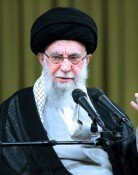The Petition against an Administrative City Is Expected to Be Lodged on June 15
The Petition against an Administrative City Is Expected to Be Lodged on June 15
Posted June. 11, 2005 06:42,
The constitutionality of the special law on the administrative city, which was enacted to build an administrative complex city in the Yeongi and Gongju area, Chungnam, will be challenged again following the administrative capital relocation law.
Lee Seok-yeon, the lawyer who successfully led last years petition against the administrative capital relocation law, said on June 10, After a meeting with related persons, we decided to lodge a petition on the laws constitutionality with the Constitutional Court on June 15.
He added, We will not apply for provisional disposition, but we will strongly demand that the Court suspend the bills validity during the deliberation. The members who attended the meeting where the petition was discussed included Lee Young-mo and former Justice of the Constitutional Court Kim Moon-hee, who led last years petition, and Choi Sang-chul, a professor at Seoul National University. It is known that Seoul Mayor Lee Myoung-bak also attended this meeting to give an address.
Much attention has been given on how the governments plan to move 177 public institutions, including some that are government-funded, out of Seoul would be affected, as it is based on section four of the law.
Lawyer Lee said that the petitioners consist of 200 to 250 people representing all works of life such as those in academia, businessmen, the self-employed, students, and housewives and all regions of the nation including Gongju and Yeongi.
He argued, The special law will lead to a result not different from moving the administrative capital out of Seoul and the movement and dissembling of Seoul, which is contrary to last years decision made by the Court. This law also should be viewed as a clause of customary constitution and therefore unconstitutional without any revision.
Lee added, Even if the construction of an administrative complex city does not call for the customary constitution, the movement of major governmental ministries, including the office of prime minister, out of Seoul is one of the important policies related to the national security and should be decided via national voting, as stipulated in section 72 of the constitution.
He said, The movement of public institutions infringes upon various human rights such as the right to pursue happiness, the right of residence movement, and the personal right of living in peace with families.
It is not easy to forecast whether the law will be deemed unconstitutional. In last years verdict, the Constitutional Court said, Government institutions other than Cheong Wa Dae and National Assembly are so specialized and immense in their characteristics that they do not have to be located in one city. This implies that the Court partly acknowledges the appropriateness of moving governmental institutions out of Seoul.
Lawyer Lee admitted, It is true that there are many conflicting ideas regarding the constitutionality of the law. However, he continued on to say, The new law will breach the constitution, since moving government ministries is not different from relocating the capital, and 80 percent of the text of the special law is identical to the capital relocation law.
Keuk-In Bae bae2150@donga.com





![[단독]폴란드, 韓 해군 최초 잠수함 ‘장보고함’ 무상 양도 안받기로](https://dimg.donga.com/c/138/175/90/1/wps/NEWS/IMAGE/2026/02/27/133437397.1.jpg)

